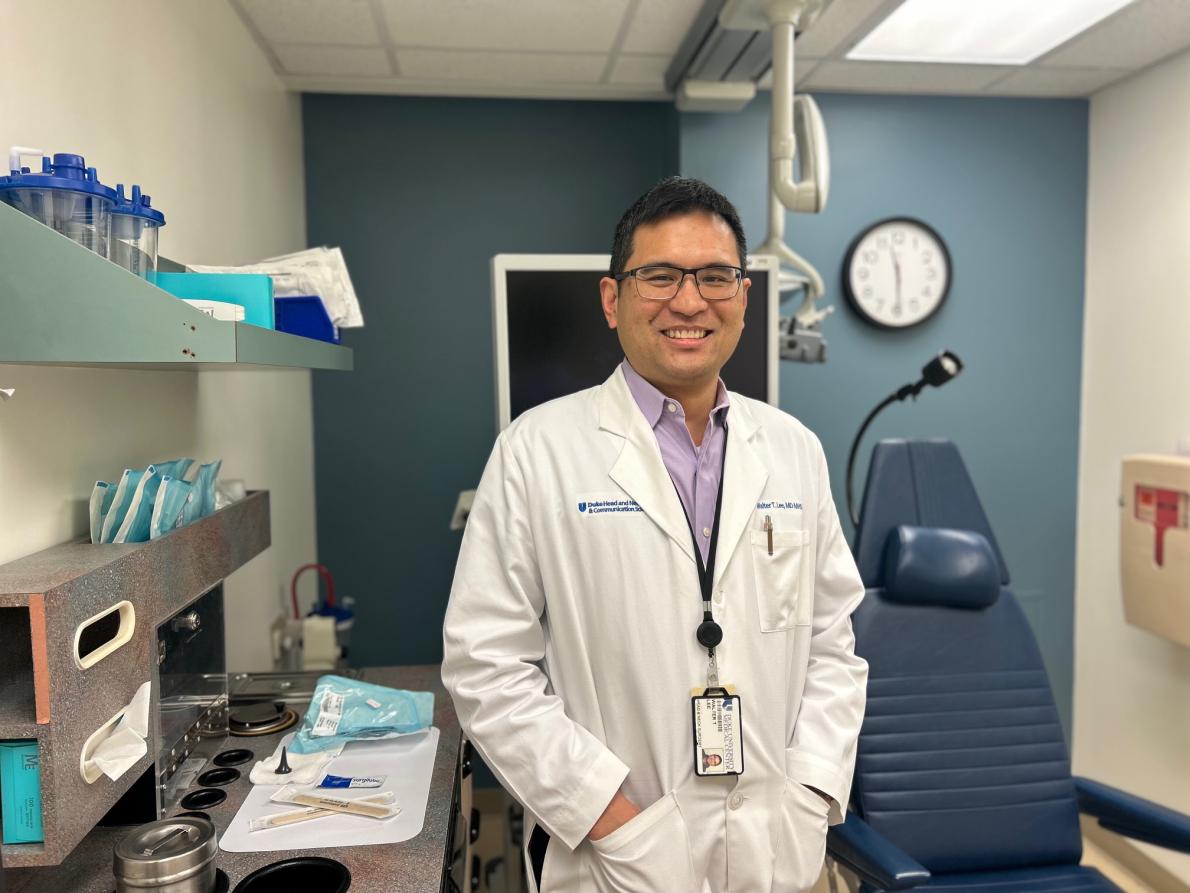Improving Access to Technology Through Innovation

At Duke otolaryngology clinics, a nasopharyngoscope is standard equipment. Our doctors regularly use the long, flexible tube connected to a camera to examine patients’ throats, looking for abnormalities.
But in many other countries, a nasopharyngoscope costs too much to have on hand (some systems are over $60,000) and specialists who know how to operate the device aren’t common.
Walter Lee, MD, Chief of the Division of Head and Neck Surgery, has seen this disparity firsthand on medical missions to Vietnam, and it led him to develop a low-cost nasopharyngoscope. Created in conjunction with Duke engineering students and in partnership with Vivo Surgical based in Singapore, ENLYT promises to get the right tool in the hands of more doctors and help them diagnose problems earlier.
A Simplified Scope

To make the ENLYT more affordable and easier to use, the student engineering team initially stripped away functionality that wasn’t essential. That included advanced optics and controls, which are useful in complex cases but not needed for a basic exam.
The team also thought about keeping maintenance and cleaning costs down, designing the scope to be compatible with disinfectants that are common in low- and middle-income countries.
“The vision is that this could be integrated into a comprehensive examination/screening protocol in low-resource or low-technology areas throughout the world,” Dr. Lee says. “This involves capacity building through democratizing the technology since it’s mobile and affordable for community clinics and facilities.”
Promising Early Results
While the efficacy of this low-cost nasopharyngoscope is being analyzed, Dr. Lee says preliminary results have been positive. He expects the initial trial results to be published by summer 2024.
In addition, the scopes are scheduled to be part of an implementation study in a network of partner hospitals in Vietnam including National Otolaryngology Hospital and E General Hospital in Hanoi and Ear, Nose, and Throat Hospital and Nguyen Tri Phuong General Hospital in Ho Chi Minh City.
“We’ve had important and insightful feedback regarding the form and function of the scope,” Dr. Lee says. “This includes user interface and scope ergonomics — for example, we designed the handle to improve ergonomics”.
“It’s important to get end-user input and see how it could be implemented in low-resource settings.”
The current version of ENLYT is in final production and testing by the industry partner Vivo Surgical.
“Kevin Koh (CEO and founder) and his team at Vivo Surgical have been great to work with mainly because of our shared vision and goals to see lives positively impacted through this work,” Dr. Lee says.
In the future, Dr. Lee hopes to develop more instruments and devices that can be used for earlier detection of disease that results in earlier treatment and better outcomes, including using artificial intelligence to assist in early cancer detection and nanotechnology to obtain earlier diagnosis of cancers through saliva samples.
“We have continued relationships to explore other ideas and feedback on how to develop
innovations that have high value on multiple levels — from individual care to national healthcare utilization,” Dr. Lee says.
To schedule an appointment with a Duke Head and Neck Surgery & Communication Sciences expert, call 919-439-1870.
To refer a patient, call 800-633-3853 or use DukeMedLink.